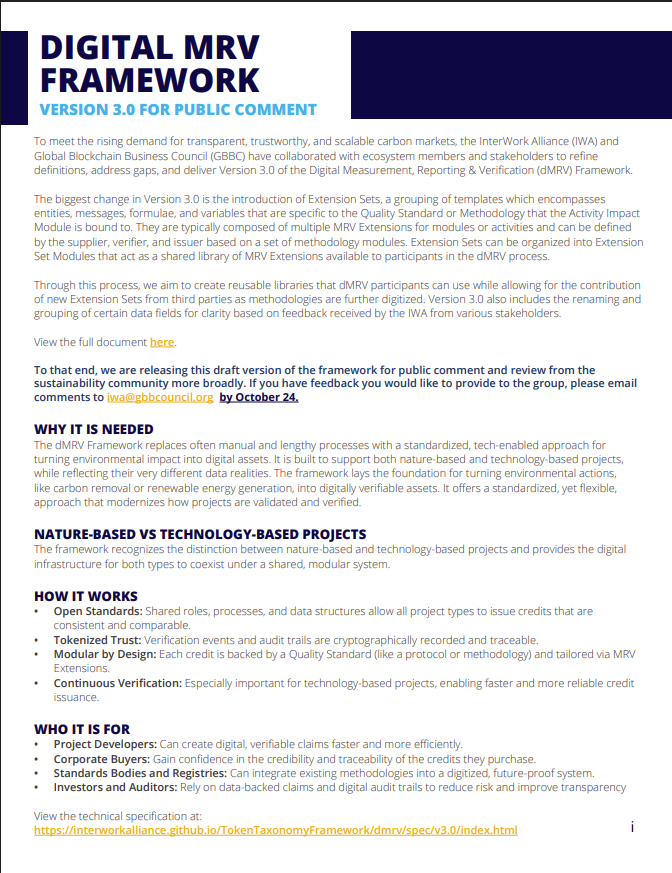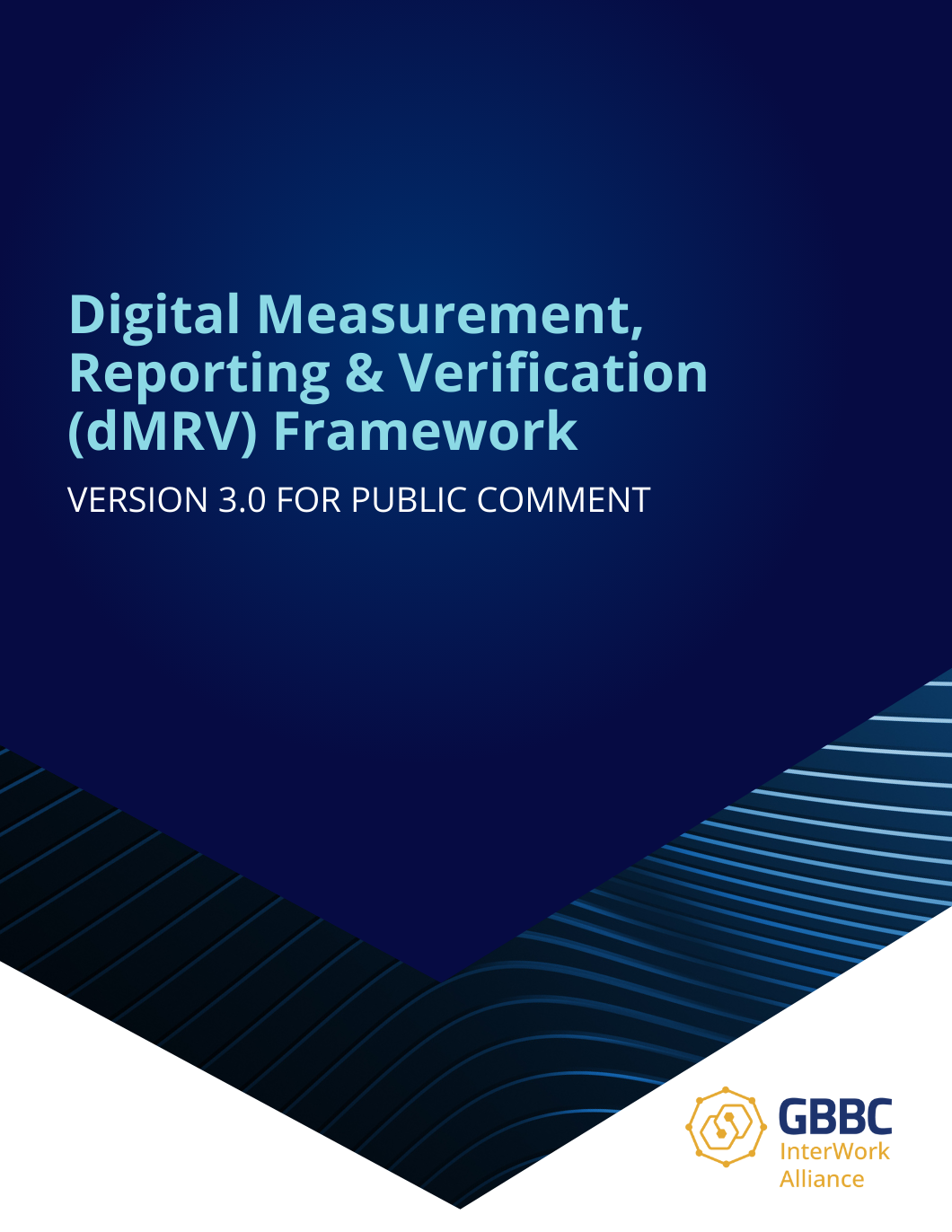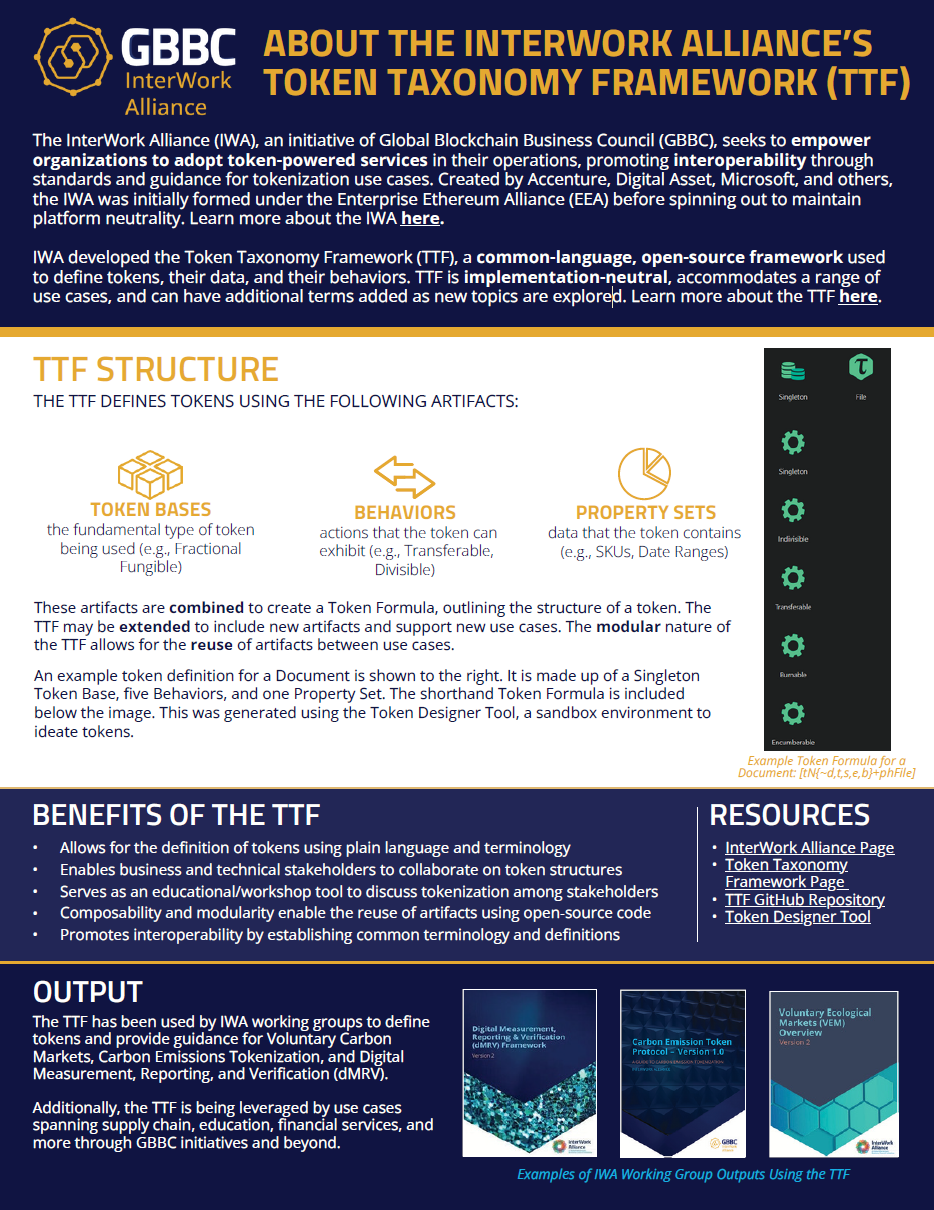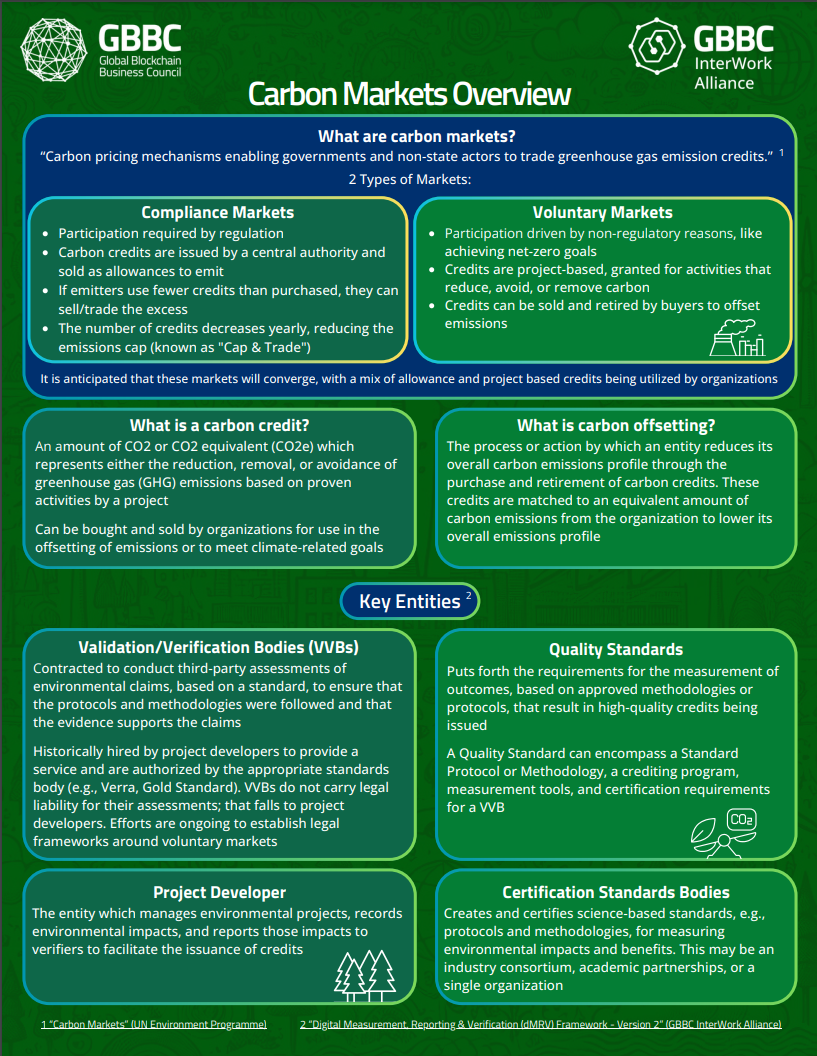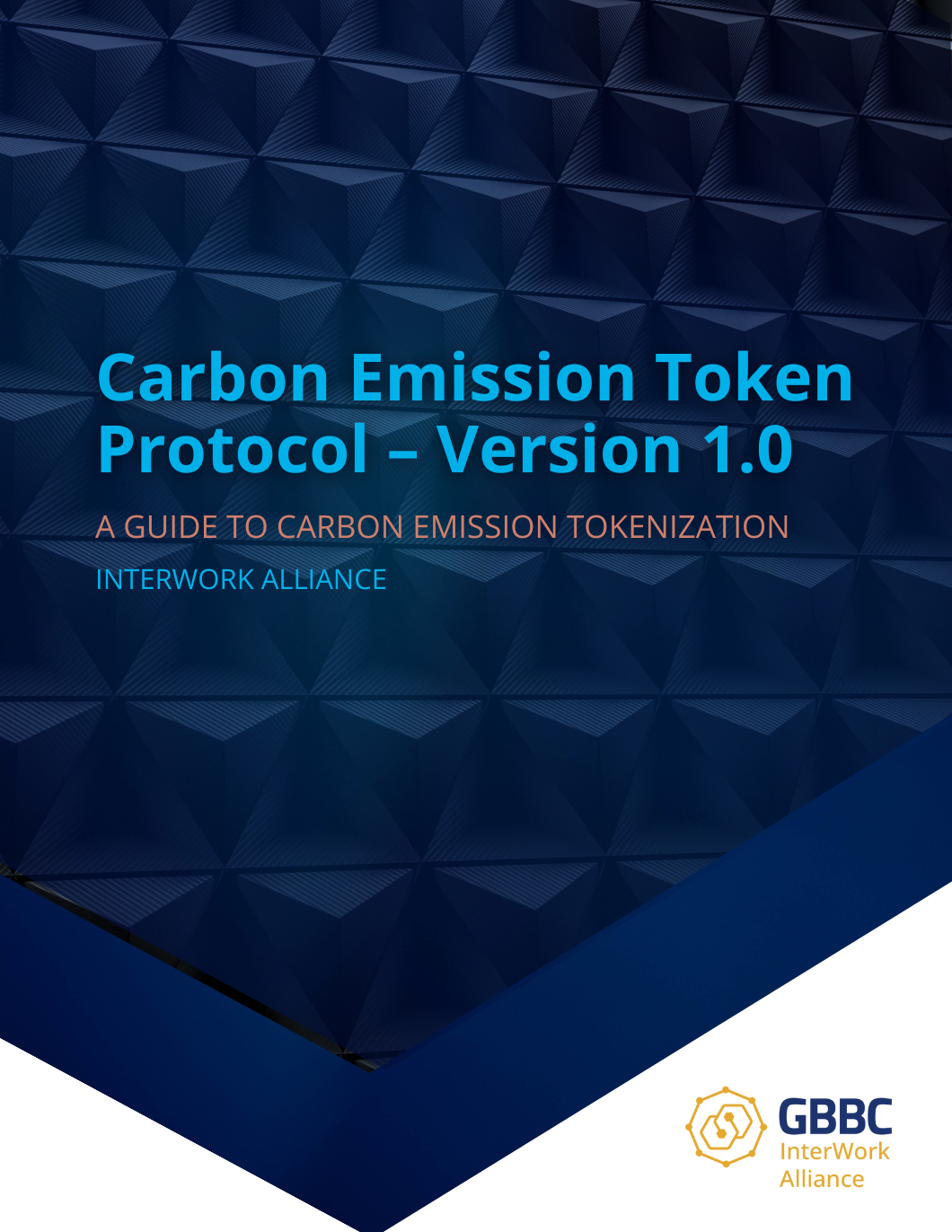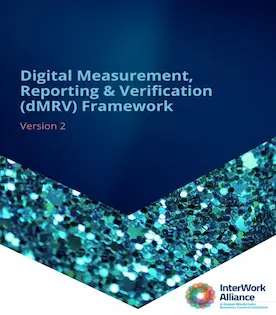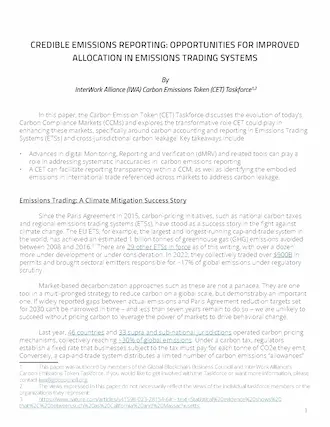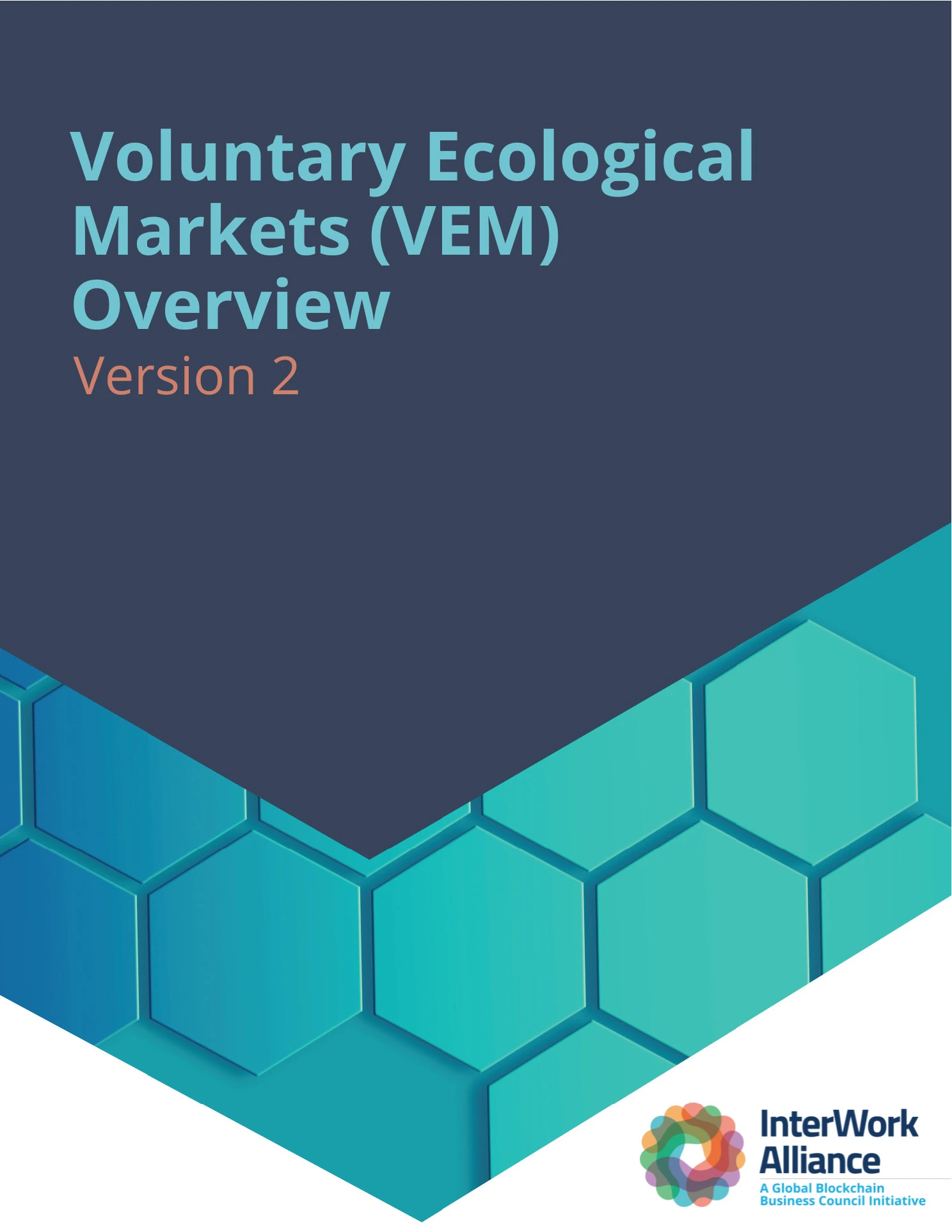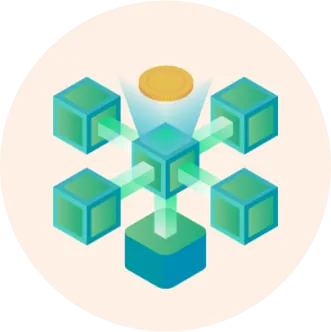The InterWork Alliance (IWA), an initiative of the Global Blockchain Business Council (GBBC), empowers organizations to adopt and use token-powered services in their day-to-day operations, across use cases and networks, bringing inclusivity to globally distributed applications.
Founded in 2020 and merged in 2021 with GBBC, IWA is a key rallying point for organizations to collaborate on market-driven interwork standards and taxonomy to transform digital interchanges of value.
GBBC members or non-members interested in joining an IWA Working Group, please send your request to iwa@gbbcouncil.org.



